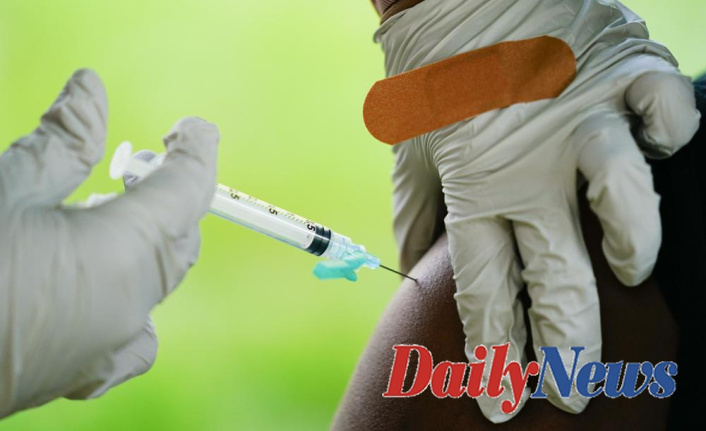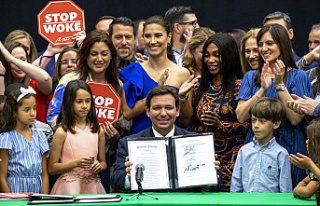There is already confusion among the public about who should receive a second booster right away and who should wait. It is also disputed whether everyone may need an additional dose in the fall.
"I am very concerned about booster fatigue," which can lead to a loss of trust in vaccines that offer strong protection against COVID-19’s worst outcomes. Dr. Beth Bell of Washington University, an advisor to the U.S. Centers for Disease Control and Prevention, stated.
Despite the fact that vaccines have been successful in preventing serious illness, there is increasing pressure to create vaccines that are more effective at fighting milder infections.
Kathrin Jansen, chief of Pfizer's vaccine division, said that they go through a fire drill every quarter, every three to six months, or so, when another mutant causes panic tests to see if the shots are working.
U.S. families may feel that seeking out improvements for the next round in vaccinations is a luxury. This is because they want to protect their children, especially those under five who aren't eligible for shots. Moderna's Dr. Jacqueline Miller said that the company's application to give two low dose shots to children under 5 years old would be submitted to The Associated Press. Pfizer has not yet provided data about a third dose of its small shot for babies, as the first two failed to prove enough.
COMBINATION SHOTS ARE NEXT
Even after booster doses, the original COVID-19 vaccines are still highly protective against serious illness, hospitalization, and death.
It is risky to update the vaccine recipe to reflect the latest strains. The next mutation could also be entirely unrelated. Companies are learning from the flu vaccine which provides protection against up to four strains of influenza in one shot each year.
Moderna and Pfizer have begun testing 2-in-1 COVID-19 protection, which they plan to offer in the fall. Each shot of "bivalent" would combine the proven vaccine with an omicron targeted version.
Moderna offers a hint that this approach might work. The vaccine recipient received modest amounts of antibodies that could fight not only beta, but also the newer variants of the virus. Moderna is currently testing its bivalent candidate that targets omicron.
However, there is a deadline. Dr. Doran Fink, FDA's Director of Medicine, stated that if there are any new shots to be administered in fall, the agency will need to make a decision on a change to the recipe by the middle of the summer.
DON'T EXPECT BOOSTERS EVERY FEW MONTHS
The average person will need two doses of Moderna or Pfizer vaccine plus one booster. This "sets you up" for what could be an annual booster, according to Dr. David Kimberlin, a CDC advisor from the University of Alabama at Birmingham.
The CDC data shows that most people will experience an incremental, temporary benefit after the first booster.
Why are there three shots? The development of antibodies can be used to fight off coronavirus infection. However, these antibodies naturally diminish over time. Next is memory cells, which are able to activate and make new virus-fighters in the event of an infection. Researchers at Rockefeller University discovered that these memory cells are more powerful and can target different viruses after the third shot.
Even if someone is vaccinated for a mild illness, there are still memory cells that can protect against serious illnesses. Dr. Paul Offit from the Children's Hospital Philadelphia said that even if they get a mild infection, those memory cells will continue to work to protect them.
Some people, however, need to be protected more often if they have a severely compromised immune system.
Americans over 50 are eligible for a second booster. This follows similar decisions made by Israel and other countries offering the extra shot to provide older people with some protection.
The CDC is currently developing guidance to assist those who are eligible in deciding whether they should get an additional shot immediately or wait. The elderly, those with chronic health conditions, and people who are most at risk from exposure due to work or travel are some of the groups who may need a booster sooner.
NASAL VACCINES CAN BLOCK INFECTION
A shot in the arm can't make enough virus-fighting antibodies to build up inside the nose, where the coronavirus latches. A nasal vaccine could be a way to stop infections that can disrupt daily life, even mild ones.
"When I think about how I would get a second booster for my immunity, I really would like to prevent infection," stated Dr. Grace Lee, Stanford University's chair of the CDC's immunization advisory board. "I believe we can do better."
It's difficult to create nasal vaccines and it's unclear how fast they could be made. Several are currently in clinical trials around the world. Bharat Biotech in India uses a chimpanzee virus to deliver harmless copies of the coronavirus spike protein into the nose.
Dr. Michael Diamond, Washington University in St. Louis, said that he does not want to lose the successes with COVID-19 shots. He was the one who created the candidate now licensed to Bharat.
Diamond said that "we're going have a hard time stopping transmission with current systemic vaccinations." We have all learned this."












